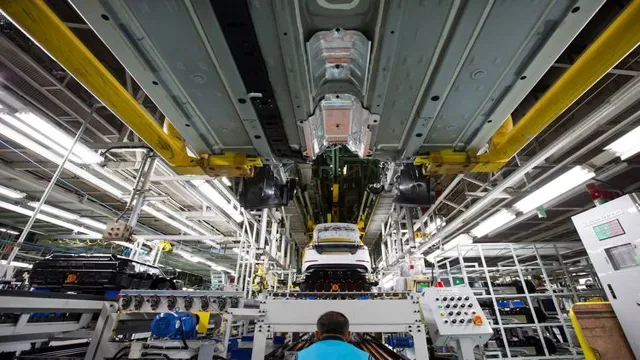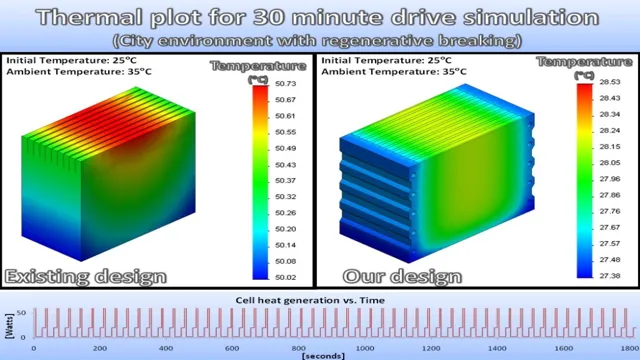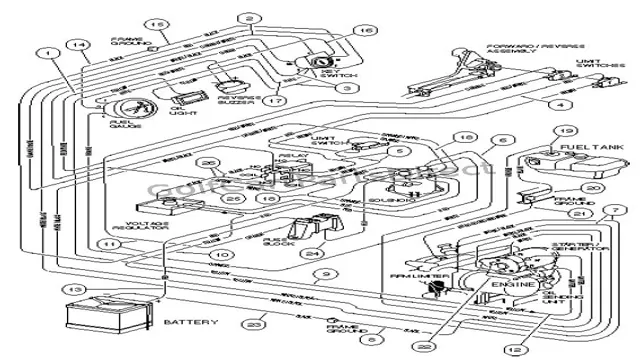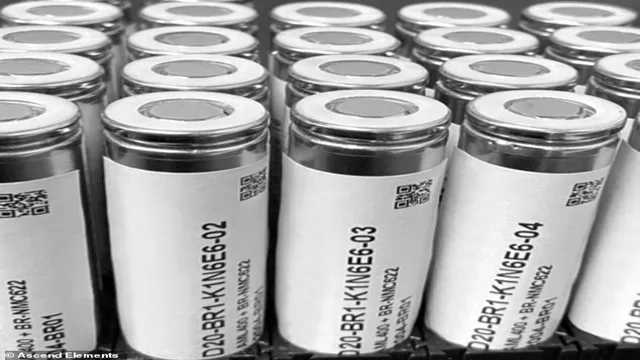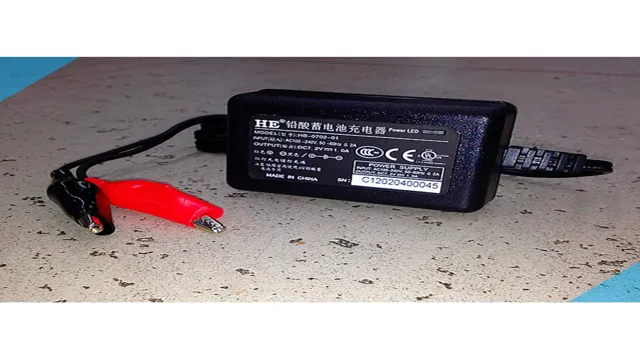Powering up the Revolution: Exploring the Latest Electric Car Battery Technology in 2018
Electric car battery technology has come a long way since its inception. With growing concerns about the environment, there has been a surge in demand for electric cars. While there have been concerns about the range of these cars, improvements have been made to the battery technology so that the range is no longer a significant limitation.
The battery technology used in electric cars is developing exponentially. The advent of solid-state batteries is set to revolutionize the industry. These batteries offer improved energy density and safety features, among others.
In 2018, several car manufacturers unveiled prototypes and concepts of cars featuring solid-state batteries. The potential for these batteries is enormous, offering significantly higher range, longer lifespan, and faster charging times compared to current lithium-ion batteries used in most electric vehicles today. Another area of development is battery recycling.
With the increase in the production of electric vehicles, sustainable and environmentally-friendly practices must be put in place to handle the disposal of batteries. Recycling batteries will reduce waste and help to ensure a steady supply of crucial battery materials for car manufacturers. In summary, electric car battery technology is developing rapidly, and we can expect to see significant improvements in range, safety, charging times, and sustainability.
As a result, electric vehicles will become more affordable and accessible to the masses, paving the way to a greener future for the planet.
Introduction to Electric Car Batteries
Electric car battery technology has come a long way in recent years, and 2018 marks another milestone in this exciting field. Today, new electric cars can travel further on a single charge due to the progress made in battery technology. Lithium-ion batteries are the most commonly used batteries in electric vehicles, and advances in this technology have made it possible for electric cars to last longer and perform better.
With the development of solid-state batteries, the electric car industry is expected to take another leap forward, providing even more efficient and sustainable battery solutions for the future. As technology continues to evolve, electric car batteries will become more affordable, dependable, and environmentally friendly, making them a viable alternative to traditional cars. With electric car battery technology improving every year, we can look forward to a future of greener, more efficient transportation.
What is an Electric Car Battery?
Electric Car Battery Electric car batteries power up the electric motor that propels the vehicle. These batteries are rechargeable and store chemical energy in the form of electricity. The most common type of electric car battery is the lithium-ion battery, which is similar to the battery in your mobile phone or laptop but on a much larger scale.
The battery pack is made up of thousands of small cells that are connected together in series or parallel to increase the voltage and power output. An electric car battery has several advantages over conventional gasoline engines, including lower maintenance and operating costs, zero emissions, and better fuel efficiency. While these batteries can be expensive, the cost is decreasing rapidly due to advancements in technology and manufacturing processes.
Additionally, many governments offer incentives and tax credits for purchasing electric cars, which helps to offset the initial costs. One of the biggest concerns with electric car batteries is range anxiety, or the fear of running out of power before reaching a charging station. However, newer electric cars can now travel up to 300 miles on a single charge, making them more practical for everyday use.
As charging infrastructure improves and battery technology continues to advance, electric cars are becoming an increasingly viable alternative to traditional gasoline-powered vehicles. In conclusion, an electric car battery is a rechargeable storage device that powers the electric motor of an electric vehicle. Lithium-ion batteries are the most common type of electric car battery, and they offer several advantages over gasoline engines.
Although range anxiety is a concern for some, EV batteries are rapidly improving, making electric cars a practical and environmentally friendly option for many drivers.
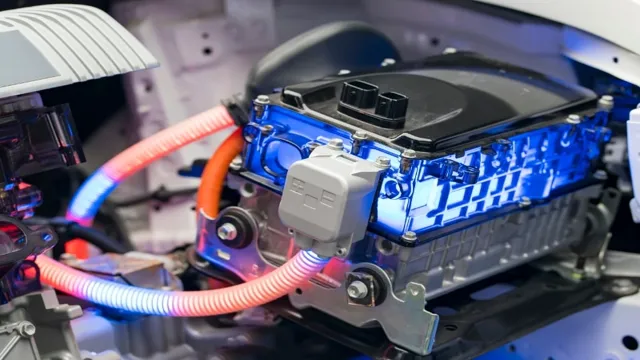
Why Electric Car Batteries are Important
Electric car batteries are the backbone of every electric vehicle, and they play a vital role in powering the car. These batteries use advanced technologies that allow them to store and deliver energy efficiently. The batteries work by converting chemical energy into electrical energy, which powers the car’s electric motor.
In recent years, electric car batteries have become increasingly important as more and more people are turning to electric vehicles because of their many benefits. Not only are electric cars more environmentally friendly, but they are also cheaper to operate and maintain compared to traditional gas-powered vehicles. The batteries used in electric cars are constantly improving, with manufacturers developing new batteries that offer longer ranges and faster charging times.
As electric cars become more popular, the demand for improved batteries will only increase, making them an essential component of the modern automotive industry.
Advancements in Electric Car Battery Technology
Electric car battery technology has come a long way in recent years, and 2018 has seen even more advancements. With the rise in popularity of electric cars, researchers and scientists are constantly trying to improve the technology behind the batteries. One area of focus has been the development of solid-state batteries, which offer higher energy density, faster charging times, and increased safety compared to traditional lithium-ion batteries.
Another area of interest is the use of recyclable materials for battery production, reducing the environmental impact of electric cars. These advancements are not only improving the performance of electric cars but also making them more accessible to the average consumer. With these developments, it is exciting to speculate on what the future holds for electric car battery technology and the electric car industry as a whole.
Current State of Electric Car Batteries
The current state of electric car batteries is rapidly evolving, with new advancements in technology being made each year. One recent breakthrough involves the use of solid-state batteries, which can potentially provide greater energy density, longer lifespan, and quicker charging times compared to traditional lithium-ion batteries. Additionally, automakers are investing in developing larger and more powerful battery packs, enabling electric vehicles to have longer ranges and greater performance capabilities.
With these advancements, electric cars are becoming increasingly accessible to the mass market, as drivers no longer need to worry about running out of battery power during their journeys. As electric car battery technology continues to evolve, we can expect to see even more exciting developments in the near future. The potential for electric cars to revolutionize the automotive industry is enormous, and the advancements being made in battery technology are a major driving force behind this shift.
Overview of Latest Battery Innovations
Advancements in electric car battery technology have been changing the industry significantly in recent years. One of the most recent and exciting innovations is the solid-state battery. This new type of battery uses a solid electrolyte instead of the traditional liquid electrolyte.
This makes them safer, more efficient, and longer-lasting than their liquid counterparts. Companies like Toyota and BMW have already shown prototypes of solid-state batteries, and it’s expected that they will be commercially available within the next five years. Another major advancement is the use of silicon in battery anodes.
Silicon has a much higher energy density than graphite, which is currently used in most electric car batteries. This means that silicon anodes can greatly increase the range of electric vehicles and reduce charging times. While there are still hurdles to overcome, these advancements in battery technology show that electric vehicles will only continue to become more efficient and practical in the near future.
Analysis of Battery Performance and Impact
Advancements in Electric Car Battery Technology are changing the game of electric vehicles. Not only are the batteries becoming more energy-dense, but they are also becoming cheaper to produce. This means that the cost of electric cars will continue to decrease, making them more accessible to the average consumer.
In addition, advancements in battery technology mean that electric cars can travel further on a single charge, alleviating one of the biggest concerns people have with electric cars: range anxiety. This makes electric cars a more practical option for longer trips, and as charging infrastructure continues to expand, they become an even more viable alternative to traditional gasoline-powered vehicles. The improvements in battery technology also have a positive impact on the environment, as electric cars produce zero emissions and have a lower carbon footprint than gasoline-powered cars.
All of these advancements are making it an exciting time to be a part of the electric car revolution.
Future of Electric Car Battery Technology
Electric car battery technology has come a long way since the first electric cars were introduced. In 2018, the future of electric cars is looking bright, with advancements in battery technology allowing for longer driving range and shorter charging times. Lithium-ion batteries are currently the most popular type of battery used in electric cars, but researchers are looking to develop new battery materials, such as solid-state batteries, that could potentially offer even better performance.
Additionally, there is a growing focus on recycling used batteries to reduce the environmental impact of electric cars. With these developments, electric cars could soon become even more practical and affordable for the average consumer, making a cleaner and more sustainable mode of transportation more accessible for all. So, let’s look forward to a future where electric car battery technology continues to evolve and revolutionize the way we travel.
Emerging Trends in Battery Research
Electric Car Battery Technology Electric car battery technology is constantly evolving and improving. One of the most exciting trends in battery research is the development of solid-state batteries. Unlike traditional lithium-ion batteries, which rely on a liquid electrolyte, solid-state batteries use a solid electrolyte.
This makes them safer and less prone to catching fire. Solid-state batteries also have the potential to hold more energy, which could lead to longer driving ranges for electric cars. Another emerging trend in battery research is the use of lithium-sulfur batteries.
These batteries have the potential to store even more energy than lithium-ion batteries while being lighter and cheaper to produce. However, they still need further development to improve their lifespan and stability. As battery technology continues to improve, the future of electric cars looks brighter than ever.
With longer driving ranges, faster charging times, and safer batteries, electric vehicles will become more accessible and practical for everyday use.
Future Prospects and Opportunities
The future of electric car battery technology is looking bright as research and development continue to push the boundaries of what is possible. Current lithium-ion batteries are already becoming more efficient and able to hold larger amounts of energy, but developments in solid-state batteries are showing even greater promise. These batteries use solid-state electrolytes instead of liquid, which makes them safer and potentially more powerful.
Another area of research is in battery recycling, with companies investing in technologies to retrieve materials such as lithium, cobalt, and nickel to be reused in battery production. As the demand for electric cars continues to rise, the opportunities for innovation and advancement in battery technology are endless.
Conclusion and Recommendations
In conclusion, electric car battery technology has come a long way in 201 From longer ranges to faster charging times, manufacturers are continually improving the efficiency and reliability of their batteries. As we move towards a greener future, electric cars will undoubtedly play a significant role in reducing our carbon footprint.
So, let’s charge up and drive towards a cleaner and brighter tomorrow!”
FAQs
What advancements in electric car battery technology were made in 2018?
In 2018, researchers made strides in developing solid-state batteries, which could provide longer driving ranges and faster charging times for electric vehicles. Additionally, companies such as Tesla and BMW improved the efficiency and energy density of their lithium-ion batteries.
What are the benefits of solid-state batteries for electric cars?
Solid-state batteries offer several benefits for electric cars, including longer driving ranges, faster charging times, and improved safety. Unlike traditional liquid electrolytes, solid-state batteries use a solid material to conduct ions, which reduces the risk of fire and explosion.
How has electric car battery technology improved over the past decade?
Over the past decade, electric car battery technology has improved significantly, with increases in energy density, longer driving ranges, and faster charging times. Additionally, advancements such as regenerative braking and thermal management systems have helped to improve the efficiency and lifespan of electric car batteries.
What are some of the challenges facing electric car battery technology?
Despite the advancements in electric car battery technology, several challenges remain, such as high production costs, limited manufacturing capacity, and the need for rare materials such as lithium and cobalt. Additionally, concerns about the environmental impact of battery production and disposal must be addressed.


